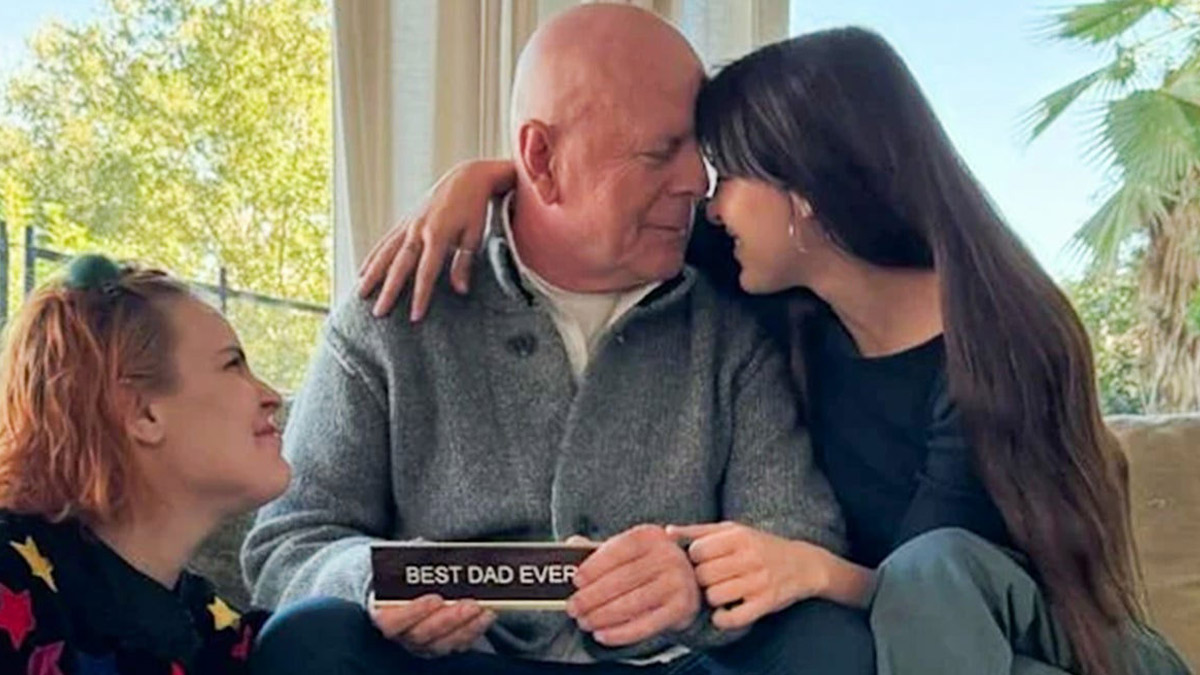Actor Bruce Willis is unable to communicate or walk as dementia progresses. Read ahead to know what happens in late-stage frontotemporal dementia and its impact on loved ones.
Bruce Willis was one of Hollywood’s most loved and iconic stars. He retired from acting in 2022 after his family revealed he was struggling with serious health issues. Known for unforgettable roles in Die Hard, The Sixth Sense, and Pulp Fiction, Willis built a career filled with memorable characters, action-packed films, and sharp, witty performances. In 2023, his family shared that he had been diagnosed with frontotemporal dementia, a progressive brain disease. Now, recent updates reveal a heartbreaking reality. Read ahead to know more about his health and how he is doing.
Bruce Willis’ Health Update
Bruce Willis turned 70 this year, and due to memory loss, he no longer remembers that he was a famous and highly accomplished actor.
Today In History (@historigins) July 21, 2025
Recent updates from family and close sources have shared a deeply sad reality: Bruce Willis can now no longer speak, read, or walk due to the rapid progression of his dementia. Frontotemporal dementia, sometimes called FTD, affects the brain areas that manage language, movement, and behaviour. As a result, Willis gradually lost the ability to communicate and even recognise written words.
For his loved ones, the changes have been heartbreaking. Reports describe how Willis, once quick with a joke and always on the move, now needs constant care. He can no longer hold conversations, enjoy reading, or move independently. Family members have asked for privacy and understanding as they support him through this challenging time.
How Dementia Progresses to This Point
Dementia is a condition that slowly destroys parts of the brain needed for thinking, behaving, and moving around. Dr. Suresh Reddy Challamalla, Senior Consultant, Neurology at Gleneagles Aware Hospital, LB Nagar, Hyderabad, explains that people with dementia often show changes in their behaviour and personality. They may lose empathy and seem emotionally flat or unresponsive. The expert says these changes happen because the parts of the brain that control emotions and social behaviour, the frontal and temporal lobes, slowly get damaged as the disease progresses.
There are several types, but frontotemporal dementia is especially cruel because it strikes adults in their 50s and 60s and worsens quickly. Stages of dementia often include:
- Early signs: Trouble finding words, changes in mood, difficulty organising daily tasks.
- Middle stages: Increased confusion, trouble with speaking and understanding, loss of reading and writing skills.
- Late stages: Loss of speech, inability to recognise loved ones, full-time care needed.
With FTD, the muscles that help with walking can become very weak. Swallowing can be affected, and eventually, people lose almost all ability to move on their own.
Why Do These Losses Happen?-1753165179154.jpg)
As the disease advances, brain cells in key areas die off. This makes it impossible to control the muscles needed for speech or mobility. Over time, even basic reading and movement become impossible. Caring for someone with severe dementia is a huge challenge. People caring for loved ones like Bruce Willis often notice that:
- Communication becomes extremely limited.
- Safety risks increase since walking and swallowing are difficult.
- Round-the-clock care and supervision are necessary.
- Emotional toll can be high, both for family and for those experiencing the disease.
Helpful supports include:
- Speech and physical therapy in early to middle stages
- Mobility aids and safe home environments
- Emotional support groups for caregivers
A study published in the British Journal of Psychiatry showed that people with frontotemporal dementia can lose language and movement abilities much faster than those with other dementias. Early intervention, therapy, and family involvement can help maintain some skills for as long as possible, but eventually, support and care planning are essential.
Conclusion
Bruce Willis’s illness is a heartbreaking example of just how devastating dementia can be, both for those who have it and those who care for them. His family’s openness reminds us to show empathy, seek help when needed, and support research for better treatments and understanding for everyone touched by dementia.
Source: Onlymyhealth.com




